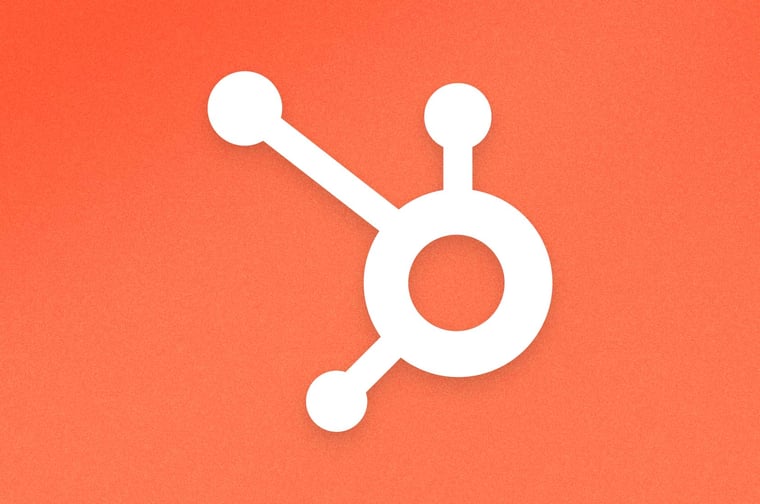Thinking about choosing HubSpot for your website, but need to know how much it costs before you make the commitment? Let’s take a look at the different HubSpot pricing options as well as how HubSpot compares to other website platforms and services.
Cost of HubSpot vs WordPress (& other Content Management Systems)
If you’re using your website for digital marketing, it’s important to consider the costs of all services you plan on needing to get a clear picture of your true monthly investment. Where HubSpot is an all-in-one marketing platform, you’ll likely have to add additional services to use other website platforms (like WordPress) effectively for marketing.
To determine the true cost of a website, make sure you consider the cost of:
- Website hosting
- Email newsletter sends
- Social media tracking & automation
- Analytics services such a Moz or SpyFu
- Sales CRM software such as SalesForce
- Landing pages & forms
One final thing to consider: Building your website on a content management system like the HubSpot COS, versus a static website, gives you the ability to easily manage your website content yourself. If (like me) you’re not a software developer, the ability to quickly edit, add or remove any site pages can be a lifesaver.
Let’s break down the costs, so you can make the best decision for your organization.
How much does HubSpot cost?
HubSpot provides three different marketing software packages, each geared toward various levels of business needs and objectives, while also being conscientious of varying budgets.
Basic
$200 per month + $600 onboarding fee
This package is the best match for a small, growing business. Perhaps your website does not need to be a well-oiled machine just yet, or you are just getting your feet wet in inbound marketing —either way, the basic package provides you a solid foundation to get started. You’ll be able to save 100 leads in your database and have the ability to identify high-potential keywords, create SEO optimized content, send email campaigns, schedule social messages in advance, and access marketing and analytic tools with easy-to-interpret data. More contacts and bandwidth can be added for businesses who aren’t ready to move up to a Pro subscription.
Pro
$800 per month + $3,000 onboarding fee
This is HubSpot’s most popular option for businesses, and the best fit for many companies. A HubSpot Pro subscription lets you nurture up to 1,000 contacts through workflows —a huge step up from the basic account in regards to the power of marketing automation. It also includes smart content functionality, which is a huge benefit. With smart content, you can personalize the website copy to your specific visitors, whether that is showing geographically-specific information or displaying language tailored to where that website visitor is in his or her buying process. Keep in mind that in this marketing era, personalization is everything and sets your business apart from your competition. In fact, 45% of online shoppers are more likely to shop on a site that offers personalized recommendations to enhance their buying experience.
Enterprise
$2,400 per month + $5,000 onboarding fee
The Enterprise subscription comes with all the HubSpot bells and whistles. This is a great option for companies that have advanced marketing and sales needs. One of the biggest differentiators when comparing the Enterprise to the Professional package is the ability to manage A/B testing —an effective way for marketers to identify the most effective ways to motivate their customers to take action.
Does it cost more to work with a HubSpot Partner?
The short answer is not really—and when you factor in ROI it might actually be cheaper for you in the long run. When you go at it alone, you have to learn everything regarding how to use HubSpot yourself (and will have to call HubSpot Support every time you need help). Think of an agency as bringing a team of HubSpot experts on staff.
A HubSpot partner will have employees who specialize in things like inbound marketing campaigns, content offers, SEO and custom development. Most agencies have in-house website strategists who can be utilized for recommendations to improve organic search engine rankings, workflows or other website related efforts. You’ll be able to leverage the expertise of each person without needing to pay for ongoing training or the individual salaries of each team member.
The agency you choose is an extension of your own team and can not only help with the initial ramp up and HubSpot implementation, but can also provide ongoing support and optimization of your digital marketing efforts. And don’t forget, an agency can also support the actual website design and development of all website pages, landing pages and email templates, ensuring your website continually maximizes inbound lead and sales potential.
Doing it on your own may end up being more unproductive and delay results. If your team can’t spare time from the existing day-to-day responsibilities, or you don’t have anyone with this kind of experience internally, it’s worth considering purchasing your HubSpot subscription through an agency. Be sure to assess the team you currently have before making this decision.
Is there a difference in HubSpot pricing between a Silver and Diamond Partner?
The HubSpot Partner Agency program is based on four tier levels: silver, gold, platinum, and diamond. Partner tiers are based on how many clients a partner works with, how engaged those clients are with the HubSpot platform, and the success those clients experience with HubSpot. All agencies offer the same HubSpot pricing to their clients.
However, the increased experience of a Diamond Partner could mean that agency has more ideas on how to increase the value of your HubSpot subscription. Evaluate the different HubSpot partners; and if you are curious of what to be looking for, you can refer to the blog article on how to choose between HubSpot partners. Know that whatever your decision may be, it pays to be informed.


